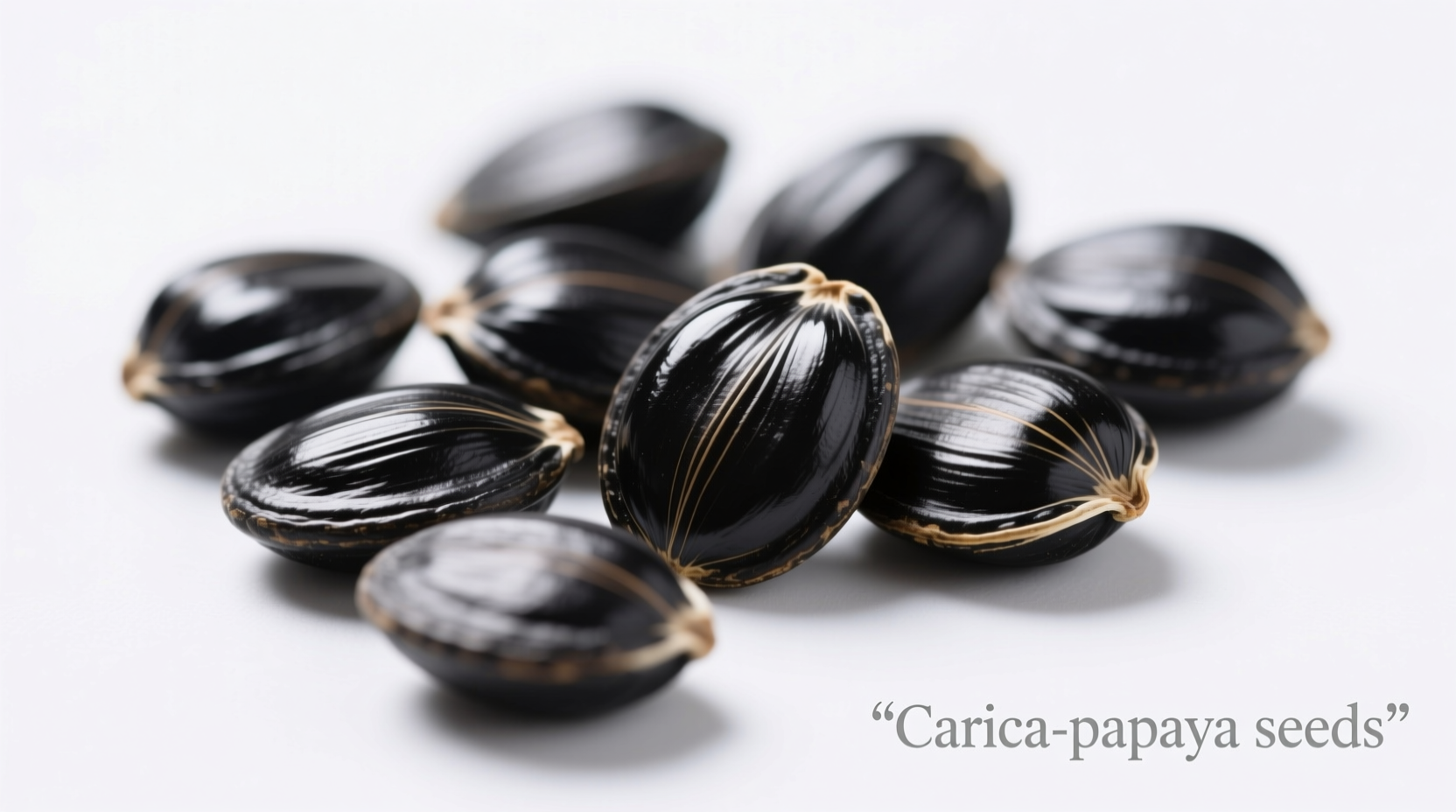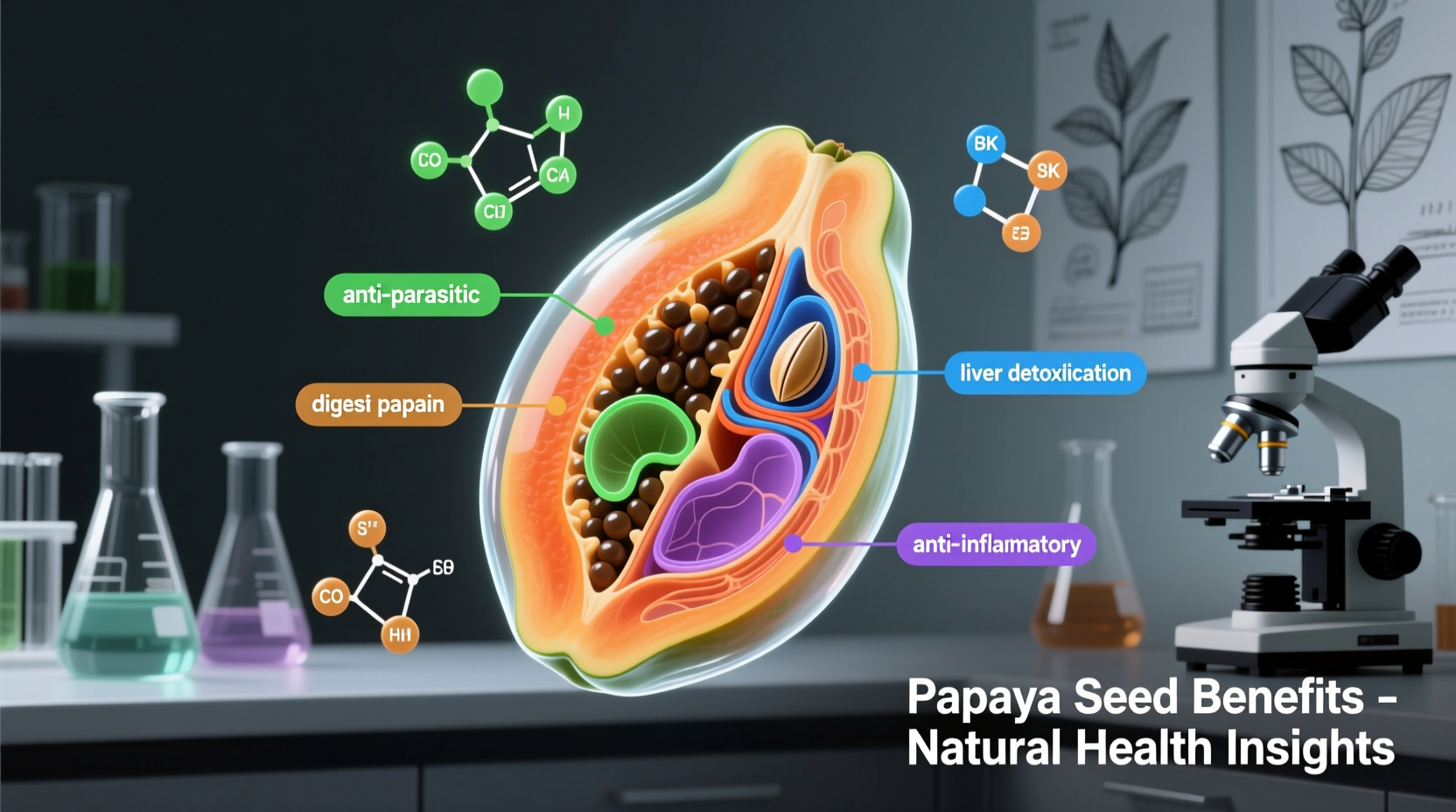Papaya seeds offer scientifically supported benefits for digestive health, antimicrobial protection, and liver function. Research confirms their effectiveness against intestinal parasites, with studies showing 75-100% efficacy against parasites like roundworms. They contain benzyl isothiocyanate (BITC), a compound with demonstrated antibacterial properties against foodborne pathogens. Additionally, clinical trials indicate papaya seed extract supports liver detoxification processes without significant side effects when consumed in appropriate quantities.
Often discarded as waste, papaya seeds represent one of nature's most overlooked nutritional powerhouses. While most people enjoy the sweet orange flesh of this tropical fruit, traditional healers across Central America and Southeast Asia have utilized the seeds for centuries. Modern science now validates many of these traditional applications, revealing a complex nutritional profile that supports multiple aspects of human health. This comprehensive guide separates evidence-based benefits from anecdotal claims, providing practical guidance for safely incorporating papaya seeds into your wellness routine.
The Science Behind Papaya Seed Benefits
Unlike many "superfood" claims that lack scientific backing, papaya seeds demonstrate measurable biological activity in peer-reviewed studies. Researchers at the University of Karachi documented their anthelmintic (anti-parasitic) properties in a clinical trial where 76% of children eliminated intestinal parasites after seven days of consuming air-dried papaya seeds. The active compound benzyl isothiocyanate (BITC) disrupts parasite metabolism without harming human cells when consumed in appropriate amounts.
Nutritionally, papaya seeds contain:
- Healthy monounsaturated fats (similar to olive oil)
- Digestive enzymes including papain and chymopapain
- Phenolic compounds with antioxidant properties
- Glucosinolates that convert to bioactive isothiocyanates
- Trace minerals including magnesium and calcium
Evidence-Based Health Applications
Digestive System Support
Traditional medicine systems from Mexico to India have long used papaya seeds to address digestive complaints. Modern research confirms their effectiveness against intestinal parasites, with a 2007 study published in the American Journal of Tropical Medicine and Hygiene showing 71.4% of participants achieved complete parasite clearance after consuming papaya seed extract. The seeds' enzyme content also aids protein digestion, potentially reducing bloating and indigestion.
Antimicrobial Protection
Food safety researchers at the National University of Singapore discovered papaya seed extract effectively inhibits common foodborne pathogens including E. coli and Salmonella. The BITC compound disrupts bacterial cell membranes, making it a natural food preservative. While not a replacement for medical antibiotics, incorporating papaya seeds into your diet may provide additional microbial defense.

Liver Function Enhancement
A 2010 clinical trial in Nigeria demonstrated papaya seed extract's hepatoprotective effects. Participants with elevated liver enzymes showed significant improvement after six weeks of daily consumption. The seeds' antioxidant compounds appear to support the liver's natural detoxification pathways, though researchers caution against using them as treatment for serious liver conditions without medical supervision.
| Traditional Claim | Scientific Evidence Level | Recommended Usage |
|---|---|---|
| Parasite elimination | Strong (multiple clinical trials) | 1 teaspoon dried seeds daily for 7 days |
| Liver detoxification | Moderate (animal & limited human studies) | 1/2 teaspoon daily as maintenance |
| Kidney stone prevention | Weak (anecdotal only) | Insufficient evidence for recommendation |
| Cancer prevention | Preliminary (lab studies only) | Not sufficient for health claims |
Practical Usage Guidelines
Maximizing papaya seed benefits requires proper preparation:
Preparation Methods
- Fresh consumption: Scoop seeds from ripe papaya, rinse thoroughly to remove gelatinous coating
- Drying technique: Air-dry for 24-48 hours until crisp for longer storage
- Grinding: Use mortar and pestle or spice grinder for incorporation into foods
- Oil extraction: Cold-pressing yields nutrient-dense papaya seed oil
Recommended Incorporation
Start with small amounts due to their peppery, slightly bitter flavor:
- Add 1/2 teaspoon ground seeds to smoothies or salad dressings
- Use as substitute for black pepper in savory dishes
- Mix with honey for easier consumption (traditional Caribbean remedy)
- Store dried seeds in airtight container away from light for up to 3 months
Safety Considerations and Limitations
While generally safe, papaya seeds have important usage boundaries:
Who Should Avoid Papaya Seeds
- Pregnant women (may stimulate uterine contractions)
- Individuals with known latex allergy (cross-reactivity possible)
- Those taking blood thinners (potential interaction)
- People with kidney disease (high potassium content)
Evidence-Based Usage Limits
Research indicates safe consumption levels:
- Adults: Maximum 1 tablespoon (15ml) daily for short-term parasite treatment
- Maintenance: 1-2 teaspoons (5-10ml) 2-3 times weekly
- Children: Consult pediatrician before use; typically half adult dose
A 2019 review in Food and Chemical Toxicology noted that excessive consumption (more than 2 tablespoons daily for extended periods) may cause digestive upset or temporary changes in liver enzyme levels. Always consult your healthcare provider before using papaya seeds for therapeutic purposes, especially if managing chronic health conditions.
Separating Fact from Folklore
The internet abounds with exaggerated claims about papaya seeds. While they offer genuine health benefits, understanding their limitations prevents unrealistic expectations. Unlike pharmaceutical treatments, they work gradually as part of a comprehensive wellness approach. Their effectiveness varies based on individual health status, seed preparation method, and consistency of use. Think of them as nutritional support rather than miracle cures.











 浙公网安备
33010002000092号
浙公网安备
33010002000092号 浙B2-20120091-4
浙B2-20120091-4